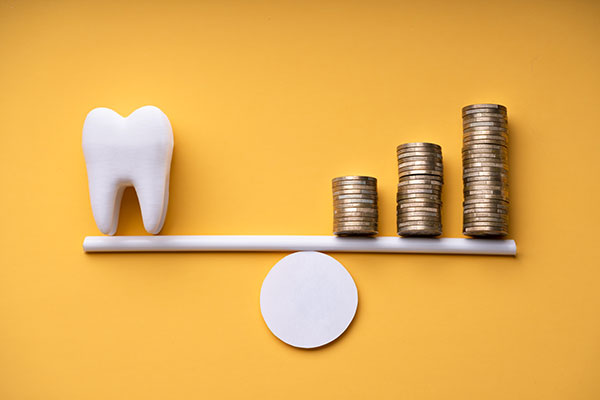Feel Relaxed at the Dentist
Do you dread going to the dentist due to anxiety or fear? You’re not alone. Millions of people worldwide experience dental anxiety, causing them to avoid the dentist and potentially compromising their oral health. However, with oral sedation dentistry, patients can feel relaxed at their dental appointments.
Our Dumas dentist breaks down how oral conscious sedation works and how it can benefit you. If you have any questions, or you’re looking to schedule an appointment, call us today at (806) 935-6811.
What Is Oral Conscious Sedation?
Oral conscious sedation involves administering medication to help patients feel relaxed and comfortable during dental appointments. It allows patients to be awake and able to respond to instructions.
From a simple dental cleaning to more invasive treatments, minimal sedation can make a world of difference for patients who would otherwise avoid the dental chair.
How Oral Conscious Sedation Works
Oral conscious sedation utilizes sedative medications, such as benzodiazepines or non-benzodiazepines, to reduce anxiety and promote relaxation during dental procedures. These medications work by binding to certain receptors in the brain, effectively reducing the activity in areas responsible for fear and anxiety. This allows for a calm and comfortable dental experience.
Types of Oral Sedatives
Oral sedatives come in various forms, each with its own unique properties and effects. The three main categories of oral sedatives are:
- Benzodiazepines: These are commonly used for oral sedation due to their anxiolytic and sedative properties. Compared to other sedatives, benzodiazepines possess a considerable safety margin (high therapeutic index). This means that they have a lower risk of causing dangerous side effects, making them a popular choice for sedation dentistry.
- Non-Benzodiazepines: These provide similar effects to benzodiazepines but may have fewer side effects and a lower risk of dependency. They can still effectively reduce anxiety and promote relaxation during dental procedures, making them a viable alternative for some patients.
- Antihistamines: These are primarily used to treat allergies and other ailments, but they can also be used as sedatives to help reduce anxiety and induce relaxation. Although their sedative effects may not be as potent as benzodiazepines or non-benzodiazepines, antihistamines can still provide a valuable option for patients in need of mild sedation during dental procedures.
Before your dental treatment, our dentist will disclose what type of oral sedative they offer.
The Oral Conscious Sedation Process
Pre-Procedure Consultation
During the pre-procedure consultation, our Dumas dentist will assess your medical history, anxiety levels, and specific needs to determine the most suitable sedative and dosage for your dental procedure.
Along with discussing the procedure and any pre-operative instructions, our dentist may also visually examine your oral health and inquire about any relevant dental history. This information helps your dentist make informed decisions regarding your sedation plan and ensures that any potential issues are addressed before the procedure.
During the Procedure
Throughout the dental procedure, our dental team will closely monitor your vital signs and ensure that you remain comfortable and relaxed. They’ll use a range of techniques to keep track of your pulse, blood pressure, and oxygen levels, allowing them to quickly respond to any changes in your condition.
We’ll also take measures to ensure your comfort and relaxation during the procedure. This may include creating a tranquil environment, using distraction techniques, and administering pain relief medications. The goal is to make your dental experience as pleasant and stress-free as possible.
Post-Procedure Care
After the procedure, you may feel groggy or experience mild side effects from the oral sedation. Make sure to arrange for a responsible adult to accompany you home after the appointment, as your ability to drive or make important decisions may be temporarily impaired.
Typically, the side effects of dental sedation dissipate within a few hours. However, if you experience any lingering effects or have concerns about your post-procedure condition, contact our dentist as soon as possible.
Potential Risks and Side Effects
While oral conscious sedation is generally safe, there are still potential risks and side effects to be aware of. By adhering to our dentist’s instructions and guidelines, you can ensure a safe and effective sedation dentistry experience. The risks and side effects associated with oral conscious sedation are generally mild and short-lived.
Patients may experience:
- Drowsiness
- Dizziness
- Nausea
- Allergic reactions to the sedative medication
However, these side effects typically resolve within a few hours after the procedure.
Special Considerations
Some patients may require special considerations when undergoing dental sedation. Patients with the following medical conditions should be given special attention when administering oral sedation:
- Cardiovascular disease
- Respiratory issues
- Sleep apnea
- Geriatric patients
- Those with special needs
Insurance and Costs
Insurance coverage for sedation dentistry varies, with some plans offering coverage if it’s deemed medically necessary. Contacting your insurance provider to understand your coverage for oral sedation, and discussing payment options with our dentist is vital.
By understanding your insurance coverage and payment options, you can make informed decisions about your dental care and ensure that you receive the appropriate sedation services.
Frequently Asked Questions
Do you feel pain while under oral conscious sedation?
Oral conscious sedation doesn’t cause pain. Patients remain calm and relaxed during the procedure, and they may not even be aware of what is happening. Minor discomfort may still be felt, but this can easily be forgotten due to the sedative effect.
How long does oral sedation take to wear off?
Oral sedation can take two to eight hours to wear off, depending on the type of drug used. Amnesia is also a common side effect.
Schedule Your Dental Appointment Today!
Oral sedation dentistry offers a transformative solution for those who struggle with dental anxiety or require complex dental procedures. Don’t let dental anxiety or fear hold you back from maintaining a healthy smile.
Contact our dentist in Dumas to schedule an appointment today.


